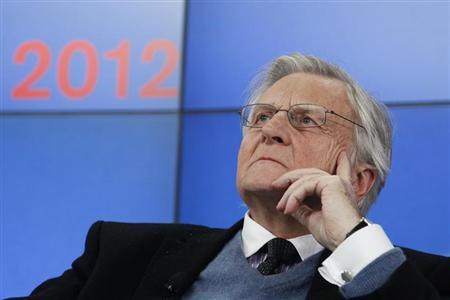By CNBC
Market watchers should not focus too much on debt forgiveness for Greece because there is little chance the country’s creditors would accept a haircut, former European Central Bank President Jean-Claude Trichet told CNBC on Monday.
Members of the European Union are simply unwilling to accept taxpayer losses, and the International Monetary Fund is not keen on losing money at all, he said. Lengthening Greece’s repayment period and decreasing the interest on its debt would likely provide sufficient relief, he added.
“We should not concentrate on this issue, which of course is very, very—I would say—spicy, but does not correspond to the reality of the situation” he said on “Squawk Box.” “The reality of the situation is to implement the plan.”
Trichet, who was ECB president from 2003 to 2011, signed off on Greece’s bailout packages in 2010 and 2011.
Some experts, including former IMF U.S. Executive Director Meg Lundsager, have said some face-value reduction to Greece’s debtwould make it more feasible for Athens to successfully implement structural reforms.
Greece has begun repaying 6.25 billion euros ($6.8 billion) it owes to the ECB and IMF using a 7.16 billion euro bridge loan secured last week after it agreed to a series of harsh reforms. The measures, which have to be put into law, should result in the country receiving its third bailout.
Talks over the details of the 86 billion euro ($93 billion) bailout were starting in earnest Monday after euro zone parliaments gave them the green light last week.
Germany, some northern European countries and a handful of the European Union’s less prosperous members have aligned against nominal debt relief for Greece.
Last week, German Finance Minister Wolfgang Schaeuble raised concerns after saying Greece may need to leave to 19-member euro zone for a period in order to cure its ailing economy, primarily by adopting its own weaker currency to become more competitive.
Trichet said different “sensitivities” will emerge in any democracy, and some members of the European Union have felt that other members should leave since the beginning of the continent’s debt crisis in 2009. “It was very much in the air in the parliament. It was very much in the air in the public opinion debate, not only in Germany, by the way.”
The successful implementation of reforms by Spain, Portugal and Ireland, as well as early progress in Greece, dampened that sentiment, Trichet said, but Greek leaders have stirred those feelings again by making inflammatory statements, which he likened to blackmail.
Former Assistant Secretary of State Robert Hormats “Squawk Box” that Germany is trying to play both sides against the middle.
“They want to have stronger rules, but they don’t want the Greeks to leave” or for the situation to deteriorate, said Hormats, who also was a Goldman Sachs vice chairman.
Germany is a strong voice but Europe cannot work well unless the country maintains a decent relationship with France, he said. France has led a coalition of EU nations that are seen as taking a softer line on Greece.
The Germans also want to prevent social deterioration in Greece because that would strengthen Russia’s hand, Hormats said. The European Union has imposed sanctions on Russia in response to its annexation of Crimea, which was formerly part of Ukraine, and its support for rebels in eastern Ukraine.









